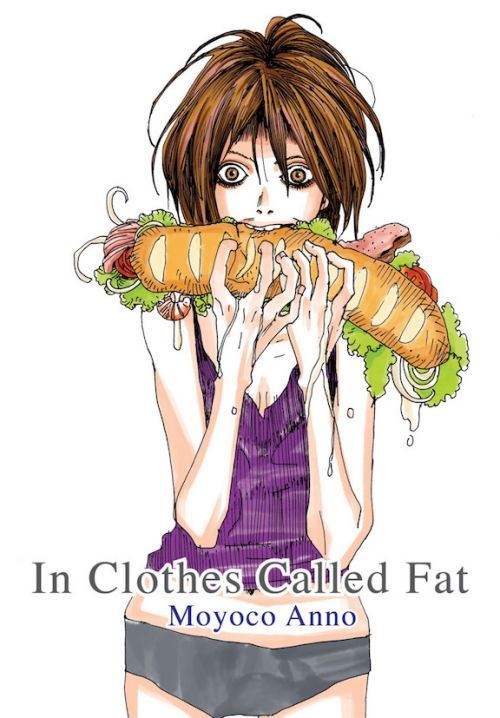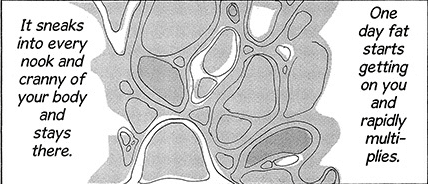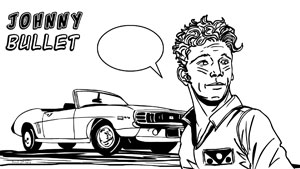|
|
 The cover's more than a little sensationalistic, but it somehow works. |
If you doubt manga and anime’s tendency towards the depressing, I have three words for you: End of Evangelion. Or, if faceless bio-robots mutilating themselves with religious symbols isn’t your thing, check out Ivan Morris’ classic The Nobility of Failure, a book that investigates Japanese culture’s centuries-long fascination with losing. In Clothes is powered by that same pessimistic preference, but Anno mediates that tendency by virtually deconstructing it through Noko’s inner life. For every outward action taken by, or upon Noko, there’s an equal and destructive reaction in her own head. In Clothes’ dark tone is not just a result of the events. It’s as much created by Noko’s crippling anxiety and compulsive rationalizing, which are, in turn, created by the uncomfortable friction between Noko’s mind, body, and body image.
 Body image is about mind and body-- Anno gets it. |
I just wish the insight was matched by an attention to plotting. The plotting is hasty, and depends too much on coincidence. There’s also a broadly painted character named Tabata, who seems to be a paranoid religious nut. In a few instances, her behavior stretches the reader’s willing suspension of disbelief. Worse yet, those instances move the story along. (An aside about Tabata: really, Anno? in a book about prejudice, you’re going to have a religious stereotype drive the plot on two occasions?). It makes In Clothes feel hastier and less professional than it should, and detracts from the meticulous attention paid to Noko’s fragile psyche. I think if Anno had extended the same sympathy to Tabata, or even some of the antagonists, the story would be markedly better. It would have provided another level of psychological insight, and challenged the reader to understand how the negotiation of one’s body image is not just about others’ statements and actions, but the ideas that motivate them.
In Clothes is a tough book to finish. It’s aware of how being bullied feels makes you feel like you’re trapped. And it understands how that feeling of being trapped is a remarkably complicated interplay of factors, both inside and outside of one’s head. In the din of propaganda from people like Concerned Students 1950 and other unthinking social justice warriors, it’s easy to think that negotiating the dynamics of victimhood merely requires that you know and agree with certain buzzwords. Actually comprehending victimhood, however, takes a finer understanding of psychology and social dynamics. This book may not capture that finer understanding perfectly, but its ambitious attempt is worth reading and discussing.
© Copyright 2002-2026 by Toon Doctor Inc. - All rights Reserved. All other texts, images, characters and trademarks are copyright their respective owners. Use of material in this document (including reproduction, modification, distribution, electronic transmission or republication) without prior written permission is strictly prohibited.

